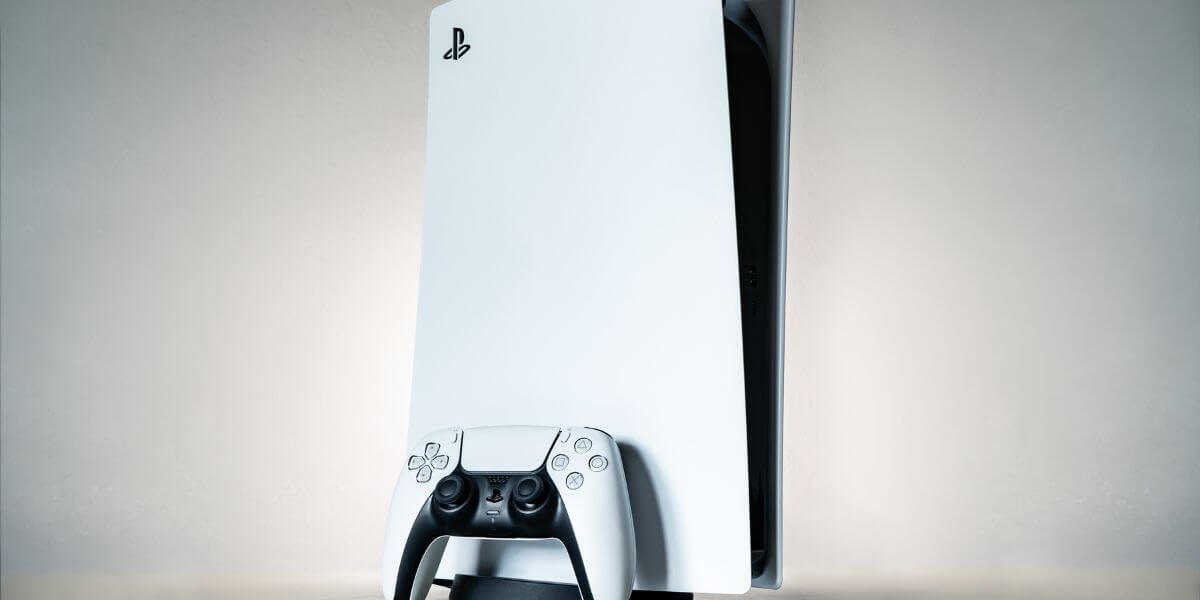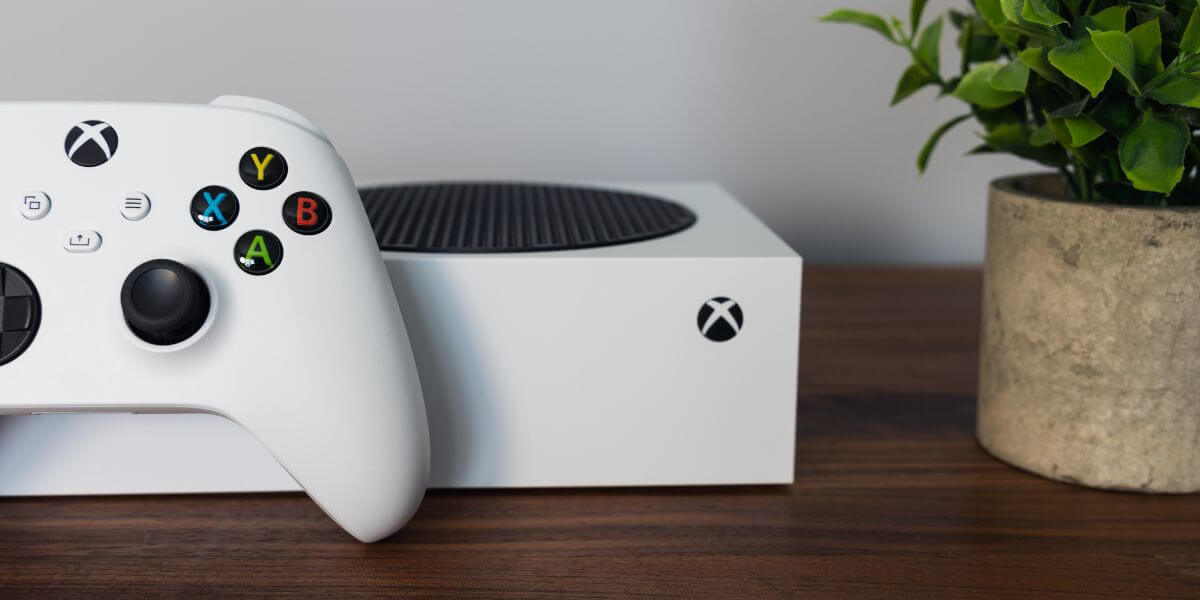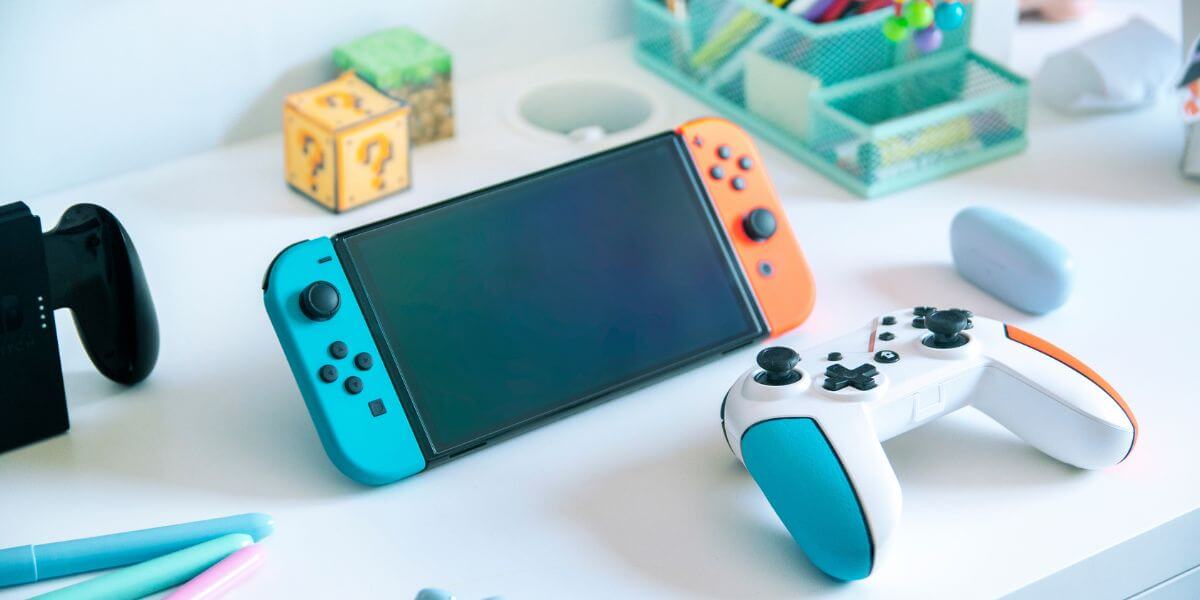Lower your internet bill
61% of people overpay for their internet.
Are you one of them?
Unlock exclusive offers in your area!
Call now
[tel]Enter zip code
1 Star is Poor & 5 Stars is Excellent.
* Required
Written by Sam Watanuki - Pub. Aug 14, 2025 / Updated Dec 09, 2025
Table of Contents
Are you happy with your Internet service?
About the author
The gaming industry has transformed dramatically over the past decade, evolving from a $68 billion market in 2012 [1] to a staggering $184 billion industry by 2022 [2]. This explosive growth has been driven largely by technological advances in gaming consoles, which now offer 4K graphics, lightning-fast load times, and immersive experiences that were unimaginable just a few years ago.
Choosing the right gaming console in 2025 means understanding not just the hardware specifications, but also how these powerful machines will perform with your home internet connection. After all, today’s gaming consoles require strong internet speeds for online multiplayer, game downloads, and streaming services.
61% of people overpay for their internet.
Are you one of them?
Unlock exclusive offers in your area!
Call now
[tel]Enter zip code
| Console | Price Range | Best Feature | Internet Requirements |
| PlayStation 5 | $499-$599 | Superior VR compatibility | 5+ Mbps for gaming, 25+ Mbps for 4K streaming |
| Xbox Series X | $499 | Best 4K graphics | 3+ Mbps for gaming, 15+ Mbps for Game Pass |
| Nintendo Switch OLED | $349 | Portable gaming | 3+ Mbps for online play |
| Xbox Series S | $299 | Budget-friendly performance | 3+ Mbps for gaming |
| Nintendo Switch | $299 | Family-friendly library | 3+ Mbps for online play |

What Makes the PlayStation 5 the Best Overall Gaming Console?
The PlayStation 5 stands as the most impressive console in today’s market, offering an unmatched combination of exclusive games, cutting-edge technology, and immersive experiences. Sony’s latest console features a custom AMD Zen 2 processor and RDNA 2 graphics card, delivering true 4K gaming at up to 120 frames per second [3].
What sets the PS5 apart is its revolutionary DualSense controller, which uses haptic feedback and adaptive triggers to create unprecedented immersion. When playing titles like Horizon Forbidden West or God of War Ragnarök, you’ll feel the tension of drawing a bow or the impact of every footstep.
The PS5’s solid-state drive (SSD) eliminates the frustrating load times that plagued previous generations. Games that once took minutes to load now start in seconds, fundamentally changing how we experience gaming. However, the console’s 825GB of storage fills up quickly with modern games averaging 50-100GB each.
For optimal performance, the PS5 requires stable internet speeds of at least 5 Mbps for online gaming and 25 Mbps for 4K streaming.

Which Console Offers the Best Value for Budget-Conscious Gamers?
The Xbox Series S delivers exceptional gaming performance at just $299, making it the clear winner for budget-conscious players. Despite its lower price point, this compact console supports up to 4K upscaling and 120fps gaming, though it typically outputs at 1440p resolution [4].
Microsoft’s “Smart Delivery" technology ensures you always get the best version of games for your console, while Quick Resume allows you to switch between multiple games instantly. The Series S includes 512GB of storage, with newer models offering up to 1TB.
The real value proposition comes through Xbox Game Pass, which provides access to over 100 games for $14.99 monthly. This subscription service has revolutionized gaming affordability, offering day-one access to Microsoft exclusives and popular third-party titles [5].
With internet requirements as low as 3 Mbps for online gaming, the Series S is also forgiving for households with basic internet plans.

How Do Nintendo’s Gaming Consoles Excel for Families?
Nintendo continues to dominate the family gaming market with both the original Switch and the upgraded OLED model (not to mention the newest Nintendo Switch 2 model). The Switch’s unique hybrid design allows seamless transitions between TV and handheld gaming, making it perfect for families sharing screen time.
The Switch OLED, released in 2021, features a vibrant 7-inch OLED screen, improved audio, and 64GB of internal storage compared to the original’s 32GB [6]. Both versions offer the same game library, which includes family favorites like Mario Kart 8 Deluxe, Animal Crossing: New Horizons, and Super Smash Bros. Ultimate.
Nintendo’s approach to gaming emphasizes local multiplayer experiences, with many games supporting up to four players using detachable Joy-Con controllers. This makes Nintendo consoles ideal for family game nights and social gatherings.
The main limitation is hardware power. Nintendo’s gaming consoles can’t match the visual fidelity of PlayStation or Xbox systems. However, their portability and exclusive game library create unique value that competitors can’t replicate.
The Xbox Series X leads in online gaming capabilities, featuring the most powerful hardware among current-generation consoles. With 12 teraflops of processing power and 16GB of RAM, it delivers consistent 4K gaming at 60fps, with select titles reaching 120fps.
Microsoft’s investment in cloud infrastructure gives Xbox Live Gold and Game Pass Ultimate subscribers access to high-quality online servers with minimal lag. The console’s ethernet port and Wi-Fi 6 support ensure stable connections for competitive online gaming.
Xbox Series X also excels in backward compatibility, playing thousands of games from previous Xbox generations with enhanced performance. This extensive library, combined with Game Pass, provides incredible value for online gaming enthusiasts.
However, the Series X requires more bandwidth than competitors, with Microsoft recommending 15 Mbps for optimal Game Pass streaming and 25 Mbps for 4K game downloads.
Today’s gaming consoles demand significantly more bandwidth than their predecessors. While online gaming itself requires modest speeds (3-5 Mbps), modern consoles use internet for game downloads, system updates, cloud saves, and streaming services.
Game downloads have become particularly bandwidth-intensive, with titles like Call of Duty exceeding 200GB. At average U.S. broadband speeds of 200 Mbps [7], downloading a 100GB game takes approximately 2.5 hours. However, households with slower connections may wait 8-12 hours for large downloads.
The Federal Communications Commission (FCC) recommends minimum speeds of 1000 Mbps download and 20 Mbps upload for modern gaming households [8]. However, homes with multiple gamers or simultaneous streaming should consider 100+ Mbps plans.
To find the best internet provider in your area for gaming, it’s essential to compare internet providers and their gaming-optimized plans. Many providers now offer low-latency packages specifically designed for gaming, with features like prioritized gaming traffic and reduced ping times.
When selecting from the top 5 gaming consoles, consider these key factors:

How Do Internet Prices Affect Your Gaming Console Choice?
Internet costs significantly impact the total cost of console ownership. Basic gaming requires modest bandwidth, but console features like 4K streaming, cloud gaming, and large downloads demand premium internet providers.
When you compare internet providers, look for unlimited data plans. Console gaming can consume 50-200GB monthly through downloads and updates alone. Many budget internet plans include data caps that could result in overage fees or throttled speeds.
Gaming-optimized internet provider
plans typically cost $50-100 monthly, compared to $30-50 for basic broadband. However, these plans often include features like gaming mode (reduced latency), prioritized traffic, and enhanced customer support that justify the additional cost for serious gamers.
To find the best value, conduct an internet provider plan comparison focusing on upload speeds, latency, and data allowances rather than just download speeds. Many providers offer bundle deals that can reduce overall costs when combining internet with other services.
Enter your ZIP code here to see all available internet options in your neighborhood.
The Xbox Series X currently offers the most powerful graphics capabilities among gaming consoles, with 12 teraflops of processing power and native 4K gaming support. However, the PlayStation 5 closely matches this performance and often delivers superior visual experiences through exclusive games optimized specifically for its hardware.
Most gaming consoles require minimum speeds of 3-5 Mbps for online gaming. However, for optimal experience including downloads, streaming, and multiple users, the FCC recommends 25+ Mbps. Competitive gamers should consider 100+ Mbps plans with low latency for the best performance.
The Nintendo Switch and Switch OLED are ideal for families, offering age-appropriate exclusive games, local multiplayer support for up to four players, and portable gaming capabilities. The extensive library of family-friendly titles and intuitive controls make Nintendo consoles the top choice for households with children.
Yes, gaming consoles offer excellent value even with slower internet connections. Single-player games, local multiplayer, and offline content provide hundreds of hours of entertainment without requiring internet access. However, you’ll miss online multiplayer and may experience longer download times for game updates and new purchases.
[1] Wired. “Study: Game Sales Reach $68.3 Billion By 2012."
[2] Newzoo. “The Games Market in 2022: The Year in Numbers."
[3] PlayStation. “PS5 Specifications."
[4] Microsoft. “Xbox Series S Specifications."
[5] Microsoft. “Xbox Game Pass."
[6] Nintendo. “Nintendo Switch OLED Model."
[7] Ooma. “Average U.S. Internet Speeds Over Time."
[8] PCMag. “FCC Officially Raises Minimum Broadband Metric From 25Mbps to 100Mbps"
About the author
Congratulations, you qualify for deals on internet plans.
Speak with our specialists to access all local discounts and limited time offers in your area.
[tel]61% of people overpay for their internet.
Are you one of them?
Unlock exclusive offers in your area!
Call now
[tel]Enter zip code